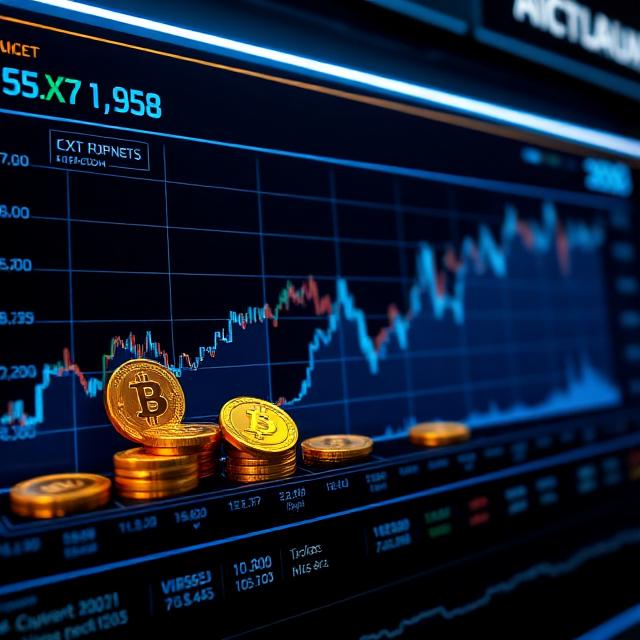PayPal to Allow Merchants to Accept Crypto Payments: A Game Changer for Mainstream Adoption
On July 28, 2025, PayPal made a landmark announcement. The global leader in online payments confirmed it will now allow its vast merchant network to accept cryptocurrency payments directly. This pivotal move marks a significant leap forward for crypto adoption. It bridges the gap between digital assets and everyday commerce. PayPal’s decision, impacting hundreds of millions of users and millions of merchants worldwide, is poised to fundamentally reshape the payment landscape. It offers unprecedented convenience for consumers and opens new revenue streams for businesses. This article explores the implications of PayPal crypto payments for merchants, consumers, and the broader digital economy.
Why Now? PayPal’s Strategic Embrace of Crypto
PayPal’s decision to enable merchant crypto payments culminates its strategic, multi-year embrace of digital assets. The company first ventured into crypto in 2020. At that time, it allowed U.S. users to buy, hold, and sell cryptocurrencies. Subsequently, in 2023, it launched its own stablecoin, PYUSD, designed for payments and transfers.
This latest move aligns with several key trends:
- Growing Crypto User Base: The global crypto user base has expanded significantly. This creates a demand for more utility beyond just trading.
- Merchant Demand: Businesses increasingly recognize the potential. They want to tap into the crypto economy and attract a new segment of customers.
- Technological Maturity: Blockchain infrastructure has evolved. It now offers more stable and efficient payment rails.
- Competitive Landscape: Other payment processors and fintech companies have explored crypto payment solutions. This pushed PayPal to solidify its position.
Therefore, by enabling PayPal crypto payments, the company leverages its existing infrastructure and user trust. This accelerates mainstream digital asset adoption.
How It Works: Seamless Integration for Merchants
For merchants, integrating crypto payments through PayPal aims for seamlessness. It should be as easy as accepting traditional fiat currencies. The process will likely involve:
- Automatic Conversion: When a customer pays with cryptocurrency (e.g., Bitcoin, Ethereum, PYUSD, Litecoin), PayPal will instantly convert the crypto. It changes to the merchant’s preferred fiat currency (e.g., USD, EUR) at the point of sale. This protects merchants from crypto price volatility.
- Simplified Settlement: Merchants will receive settlement in fiat currency. This simplifies accounting, tax compliance, and daily operations. They will not need to manage crypto wallets or navigate complex blockchain transactions.
- Existing Infrastructure: Merchants can enable crypto payments through their existing PayPal checkout solutions. This requires minimal technical adjustments.
Ultimately, this approach removes significant barriers to entry for businesses. It makes crypto acceptance practical and low-risk.
Benefits for Merchants: Expanding Reach and Efficiency
The introduction of PayPal crypto payments offers compelling advantages for businesses of all sizes.
- Expanded Customer Base: Merchants can now cater to the rapidly growing demographic of cryptocurrency holders. This attracts new customers who prefer to pay with digital assets.
- Potential for Lower Fees: Depending on the specific terms, crypto payment processing fees through PayPal could be competitive. They might even be lower than traditional credit card processing fees, leading to cost savings.
- Faster Settlement: While final settlement to fiat might still follow standard banking times, the initial crypto-to-fiat conversion can be near-instant. This potentially improves cash flow.
- Global Reach: Cryptocurrencies are borderless. This allows merchants to accept payments from customers worldwide without the complexities of traditional international banking.
- Reduced Chargeback Risk: Crypto transactions are generally irreversible due to their immutable nature. This significantly reduces the risk of fraudulent chargebacks that plague traditional payment systems.
Benefits for Consumers: Convenience and Utility
For consumers, the ability to make PayPal crypto payments unlocks new levels of convenience and utility for their digital assets.
- Wider Acceptance: Users can spend their cryptocurrencies at millions of PayPal-enabled merchants globally. This increases the real-world utility of their holdings.
- Seamless Experience: The payment process integrates directly into the familiar PayPal checkout flow. This makes it easy for users to pay with crypto.
- Flexibility: Consumers can choose to pay with various supported cryptocurrencies, including stablecoins like PYUSD. This offers options based on their preferences for volatility or stability.
- No Additional Wallets: Users can manage their crypto directly within their PayPal accounts. This eliminates the need for separate crypto wallets for transactions.
Impact on Crypto Adoption: A Giant Leap Forward
PayPal’s move represents a monumental step for mainstream crypto adoption.
- Mainstream Validation: A trusted, household name like PayPal enabling crypto payments lends significant credibility to digital assets. This encourages broader public acceptance.
- Increased Liquidity: The ability to spend crypto at millions of merchants will increase the utility and liquidity of cryptocurrencies. It moves them beyond speculative investments.
- Competition and Innovation: This move will likely spur other major payment processors and fintech companies. They will accelerate their own crypto payment solutions, fostering greater innovation in the space.
- Education and Awareness: The widespread availability of crypto payments through PayPal will naturally educate more people about digital assets. It helps demystify their use.
Challenges and Considerations
While overwhelmingly positive, the rollout of PayPal crypto payments will still navigate certain challenges.
- Regulatory Evolution: The regulatory landscape for crypto payments still evolves globally. PayPal will need to adapt to varying rules across jurisdictions.
- User Education: Some users may still need education on managing crypto within PayPal. They also need to understand its implications, despite simplification.
- Network Fees (for PayPal): PayPal will manage the underlying blockchain network fees. However, their cost structure will be crucial for competitive pricing.
Conclusion: A New Chapter for Digital Commerce
PayPal’s announcement on July 28, 2025, allowing merchants to accept cryptocurrency payments, marks a transformative moment for the digital economy. By providing a secure, convenient, and familiar gateway for PayPal crypto payments, the company expands its own services. Furthermore, it significantly accelerates the integration of digital assets into everyday life. This move promises to empower both merchants and consumers. It paves the way for a more inclusive, efficient, and digitally-driven future of commerce.













Post Comment